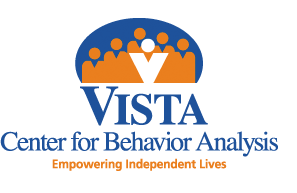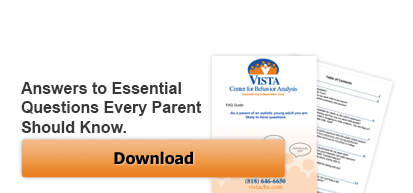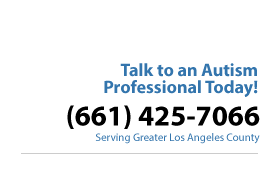Transition Program for Adolescents with Autism
Ages 13-17
Are you starting to think about what your autistic son or daughter will do after high school?
There are many families in crisis about how to answer to this question. This is a scary decision for many parents of young adults with autism or other developmental disabilities. The key to a successful transition is to start planning now. Your child’s school is not equipped to help and it’s hard to find professionals who really understand the issues and are able to suggest options for actions that you can take. So, you probably are looking for ideas on what to do. Along with parents of teens with autism, the teens, themselves, are concerned about their future. Many high-functioning people with autism and other developmental disabilities are more aware of their circumstances than many people expect. This makes it even more compelling for parents to take action and get their children the help they want and need. During the adolescent years, many things can create a deterioration of behavior for even typically- developing children. Can you relate to any or all of these questions?
- Is your teen starting to rebel because he or she wants more independence?
- Does your child behave in a socially inappropriate manner?
- Does your child lack interests outside of computer, television and IPod?
- Is your child isolated with few, if any, friends?
- Is your child living in a world in which all of his or her needs are met without any effort?
- Does your teen have poor academic skills, a poor work ethic and only a minimal sense of any need to take care of him or herself?.
- Does your child play video games at every given opportunity to the exclusion of interacting with other people?
Vista understands the concerns parents have when they see their teenage child unmotivated in school, socially isolated, and cut-off from his community. You want the best for your child but you have no idea as to how to solve the problem. Good news! You now have a partner because Vista has a program designed specifically to support you teenage son or daughter transition to adulthood.
Teens with Autism: “Transition to Adulthood” Program
Our Proven 5 Step Process for Training Adults with Autism
Step 1: Comprehensive Assessment: a master’s level Case Manager (CM) will evaluate your child’s skills, resources, supports and objectives, then produce a written report outlining the recommended services and plan for delivery of those services. Step 2: Service Delivery: your child will receive one-to-one services from a trained Behavior Interventionist (BI), who train the skills as outlined in the Initial Assessment; the BI reports to a CM, regarding the data collected on your child’s skill development. Step 3: Periodic Reporting: the CM will create quarterly Progress Reports regarding your child’s development, which will serve as a barometer for the success of the program. Step 4: Graduation: your child will graduate from the program when he or she has achieved the goals set forth in the Initial Assessment and in Progress Reports. Step 5: Post-Graduation: your child may return to the program if he or she requires follow-up support or if he or she has developed new needs which need to be addressed in an updated program.
Adults with Autism Program: “Skills for Independent Living“
Three Modules
Vista supports adult clients in our “Skills for Independent Living” program. These skills training areas have been developed as three separate modules, which can be implemented separately are all together. The decision as to which modules to implement depends on the individualized assessed needs of each client. Through our experience, interviews with families who are caring for adults with disabilities, and a review of the scientific literature, Vista has identified the following three clusters of skills or modules that are critical for promoting independence and fulfilling lives:
- Living Skills
- Social Integration Skills
- Vocational Skills
Module #1 – Living Skills In Vista’s Living Skills module, clients learn and apply activities of daily living that enhance their ability to manage their own self-care and live independently. Skills learned in the Living Skills Module include:
- Food preparation
- Cleaning and household chore
- Laundry
- Grocery and household product shopping
- Personal hygiene and grooming
- Home and community safety awareness
- Budgeting and banking
- Paying bills
- Usage of public transportation
- Usage of public restrooms
- Personal health care
- Medication management
- Shopping
- Making doctor appointments
- Self-advocacy
Module #2: Social Integration Skills In Vista’s Social Integration Skills module, clients learn and apply skills that provide for quality-of-life enhancement. A focus on the client’s areas of interest will be the starting point in developing a plan. As a result, the client will learn how to participate more fully in relationships. Skills learned in the Social Integration Skills module include:
- Fitness awareness
- Interactive conversations
- Tolerating frustration and exhibiting calming strategies
- Decision-making skills
- Making appropriate choices
- Using appropriate social etiquette and table manners
- Interpreting social cues
- Initiating and maintaining personal relationships
- Dealing with dating and sexuality
- Participating in social, recreational, and leisure activities
- Time management
Module #3: Vocational Skills: In Vista’s Vocational Skills module, clients learn and apply the essential skills necessary for entering into the workforce, finding appropriate employment, and maintaining that employment. Skills learned in the Vocational Skills module include:
- Developing a resume
- Searching for employment
- Completing job applications
- Developing interview skills
- Learning to select professional attire
- Learning to make a positive presentation
- Demonstrating appropriate work behaviors
- Collaborating and interacting with co-workers
- Managing job stress


